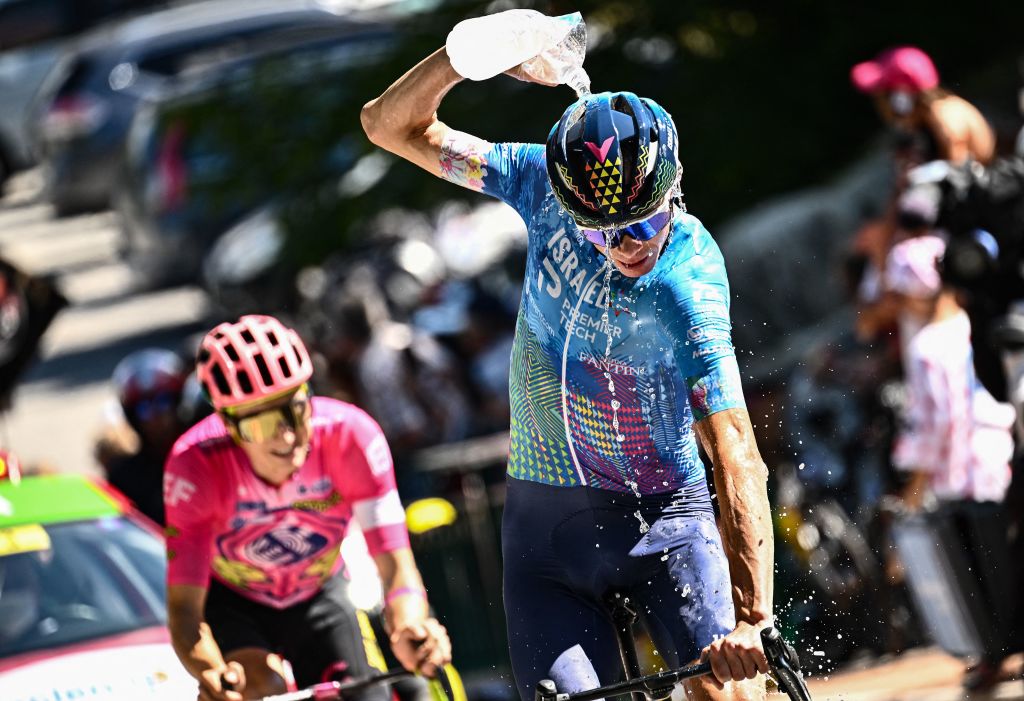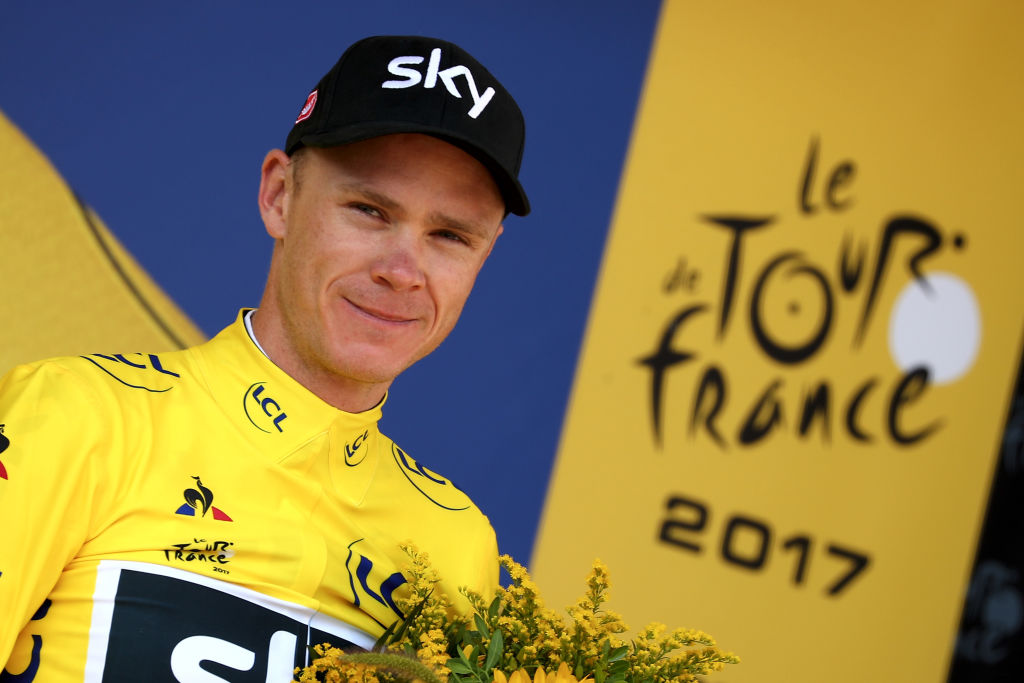Chris Froome: The Tour de France dream is always there
After coming back to life at Alpe d'Huez, four-time Tour winner sees light at the end of the tunnel

Chris Froome started the 2022 season injured and ended it sick, turning 37, as another year slipped by as a shadow of his former self. And yet, amid the setbacks, there was one beaming glimmer of hope.
At the Tour de France, the four-time yellow jersey winner didn't quite wind back the clock but he nevertheless produced his best performance in three years on the road to Alpe d'Huez. He didn't win the stage, but it was the first time victory had seemed remotely plausible since his horror crash of mid-2019.
Froome, who broke his femur and several other bones in the crash at the Criterium du Dauphine, has always insisted he can return to the level that saw him win four Tours, two editions of the Vuelta a España, plus the Giro d'Italia in 2018, which remains his last victory.
Progress, however, has been slow, with repeated setbacks and injuries.
After delaying his 2022 season start due to a knee problem, Froome sealed his spot in Israel-Premier Tech's Tour line-up with an eye-catching 11th place at the Classic Alpes-Maritimes, before properly coming back to life on the road to Alpe d'Huez. He bridged to the breakaway over the Galibier, climbed the Col de la Croix de Fer and then placed third on the legendary Alpe d'Huez behind Tom Pidcock and Louis Meintjes.
"Alpe d'Huez was a good stepping stone. It was nice to be in the race and at least fighting for the stage win," Froome said during an interview at the Singapore Criterium, with a select group of media, including Cyclingnews.
"My main goal for the season was to get to the Vuelta in my best shape and I was using the Tour as a stepping stone. Building up to the Tour and through the Tour, I started to feel more like myself again, as if I was on the right trajectory."
The latest race content, interviews, features, reviews and expert buying guides, direct to your inbox!
The progress, however, was swiftly curtailed, as Froome was forced to leave the Tour with COVID-19 after 17 stages.
"Being asthmatic, it affected me quite badly. It was the first time I'd had it," he revealed. "The rest of the season for me was pretty much a write-off."
Still, Froome stuck to his original plan and headed to the Vuelta. He got to the end, too, even if he was back finishing towards the rear of the pack most days.
Reaching Madrid as the 114th of 134 finishers, his lack of fitness was apparently due to COVID-19 rather than any ongoing physical problems, with the hope that the base kilometres will at least serve some function ahead of next season.
"This season was the first season where I haven't had any issues relating to that crash of 2019," Froome said.
"I haven't had any niggles or things holding me back. That's why I was able to see good progress through the first part of the season, until I got COVID. But I would like to pick up next season where I left off before COVID."
The Tour de France dream is always there

That glimmer on Alpe d'Huez will reignite the debate about whether Froome can return his former glories, serving as a riposte of sorts after three years in which his stated ambition of a record-equalling fifth Tour title appeared fanciful.
At 37, with a long way still to go to reach his old level, and no guarantees that his old level would suffice in this new generation, it still seems a long-shot, but Alpe d'Huez has at least given him some sort of landmark in what seemed like a desert.
"The dream is always there," Froome said, setting himself the goal of joining the five-time yellow jersey club, which includes Eddy Merckx, Jacques Anquetil, Bernard Hinault, and Miguel Indurain.
"But I know there are other steps I need to take before that's even a real concern for me. Before focusing on a goal like riding GC at the Tour de France, I have to at least chase some smaller goals, like week-long stage races.
"More than that, though, it's about having an uninterrupted period of training and racing where I don't have any illness or injury. If I can manage that, I very much hope I can get back there."
Many riders would have been tempted to call time on their career after such a horrific crash. Most might have said enough was enough after two trying post-comeback years, at the age of 36. Froome, however, has remained steadfastly - almost blindly, at times - committed to his cause.
"It's just how I feel about cycling. I genuinely love the sport, I love the process of dedication, of training, of trying to get the best out of myself," he said.
"Since my crash, it's almost as if I went back to being a neo-pro. It certainly hasn't been easy the last three years, and I've had to overcome a lot of challenges. But I'm not missing any motivation, or any will to do it. I'm willing to train just as hard as ever before. Hopefully having the experience of the last 12-13 years will help me get back there."
Patrick is a freelance sports writer and editor. He’s an NCTJ-accredited journalist with a bachelor’s degree in modern languages (French and Spanish). Patrick worked full-time at Cyclingnews for eight years between 2015 and 2023, latterly as Deputy Editor.
